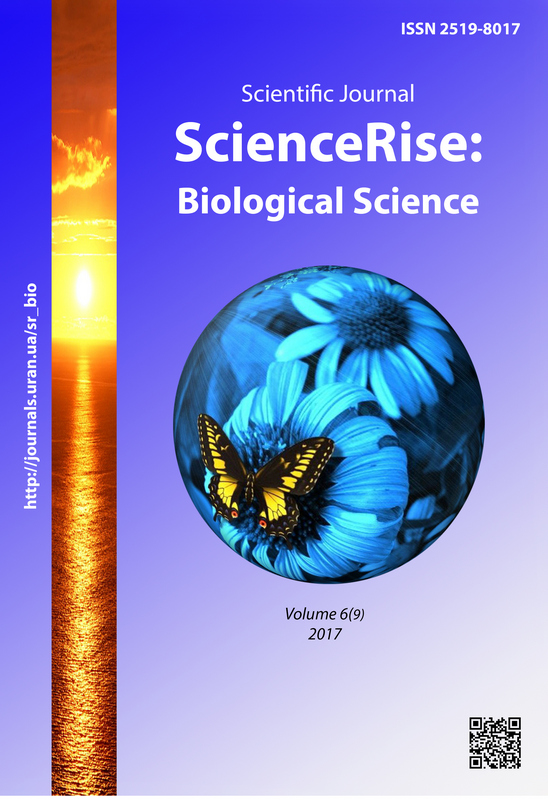Experimental study of the effects of sports tourism on the level of the development of physical training of teenagers
DOI:
https://doi.org/10.15587/2519-8025.2017.119832Keywords:
sports tourism, teenagers, health, physical training, sport, musculoskeletal systemAbstract
Sports tourism in Ukraine is an important component of the general state system of physical culture and sport.
The problem of physical training of teenagers, who practice tourism remains for today the most urgent among foreign and native scientists, who study this subject of attention specially and within the research of sports training of young tourists.
The study included 46 pupils of 5–6 classes of the following educational institutions: Ss 40 and Ss 170 of the city Kiev with the deep studying of German, the ascertaining experiment took place in 2016.
For determining the development level of school children’s physical training there were used valid and reliable methods, which results gave a possibility to collect qualitative and quantitative materials.
The criteria of formation of teenagers’ physical culture are: force features; flexibility, endurance; adroitness; ability to jump; speed, - expressed by indicators, which manifestation measure characterizes more or less degree of a criterion expression that, in its turn, helps to determine levels of formation of young teenagers’ physical culture.
The authors separated three levels of formation of teenager’s physical culture: high, middle, low.
The analysis of the level of physical training of teenagers of I group revealed that 50 % of studied persons have the high level, 36,4 % of interrogated persons have the middle level, 13,6 % of respondents relate to the low one.
The diagnostic results of the health level of teenagers of I group demonstrated that 59,1 % of studied persons have the high level, 36,4 % - the middle level, 4,5 % of interrogated persons – the low level.
The analysis of the level of physical training of teenagers of II group revealed that 16,7 % of studied persons have the high level, 45,8 % of interrogated persons have the middle level, 37,5 % of respondents relate to the low one
References
- Husarenko, M. Yu., Lubanova, V. Y. (2004). Do pytan pro zberezhennia fizychnoho i psykhichnoho zdorovia. Materialy mizhnarodnoi naukovo-tekhnichnoi konferentsiy. Luhansk, 205–207.
- Brilliantova, O. O. (2011). Teoreticheskiy razdel uchebno-metodicheskoy programmy distsipliny «Fizicheskaya kul'tura» dlya studentov IV kursa. Krasnodar: KGUFKST, 43.
- Belyaev, A. V. (1983). Rabotosposobnost' voleybolista i ee vospitanie. Voleybol. Moscow: FiS, 49–69.
- Vashchenko, O., Svyrydenko, S. (2006). Zdoroviazberihaiuchi tekhnolohiy v zahalnoosvitnikh navchalnykh zakladakh. Dyrektor shkoly, 20, 12–15.
- Bogolyubov, V. M. (Ed.) (2010). Meditsinskaya reabilitatsiya. Kn. 1. Moscow: Binom, 51–52.
- Ozolin, N. G. (1986). O komponentah sportivnoy podgotovlennosti. Teoriya i metodika fizicheskoy kul'tury, 4, 46–49.
- Zheleznyak, Yu. D. (1988). Yuniy voleybolist. Moscow: Fizkul'tura i sport, 192.
- Melnyk, O. (2005). Systemnyi pidkhid do formuvannia kultury zdorov’ya uchasnykiv navchalno-vykhovnoho protsesu. Pochatkova shkola, 57–62.
- Andrieieva, O., Holovach, I. (2015). Obgruntuvannia ta rozrobka prohramy z vykorystanniam zasobiv ekolohichnoho turyzmu dlia ditei molodshoho shkilnoho viku. Molodizhnyi naukovyi visnyk Skhidnoievropeiskoho natsionalnoho universytetu imeni Lesi Ukrainky. Fizychne vykhovannia i sport, 17, 77–83.
- Perederiy, V. H., Tkach, S. M. (2009). Osnovy vnutrishnoi medytsyny. Vol. 2. Vinnytsia: Nova knyha, 784.
- Andrieieva, O. (2015). Rozrobka ta vprovadzhennia tekhnolohiy proektuvannia aktyvnoi rekreatsiynoi diyalnosti riznykh hrup naselennia. Sportyvnyi visnyk Prydniprovia, 1, 4–9.
- Kashuba, V. O., Honcharova, N. M. (2010). Suchasni pidkhody do monitorynhu fizychnoho stanu shkoliariv u protsesi fizychnoho vykhovannia. Pedahohika, psykholohiya ta medyko-biolohichni problemy fizychnoho vykhovannia i sportu, 1, 71–74.
- Aloshyna, A. I. (2015). Profilaktyka y korektsiya funktsionalnykh porushen oporno-rukhovoho aparatu doshkilniat, shkoliariv ta studentskoi molodi u protsesi fizychnoho vykhovannia. Lutsk, 356.
- Nazarenko, G. I., Kishkun, A. A. (2000). Klinicheskaya otsenka rezul'tatov laboratornyh issledovaniy. Moscow: Meditsina, 278.
Downloads
Published
How to Cite
Issue
Section
License
Copyright (c) 2017 Olga Polkovenko, Olesya Tymchyk, Aleksandr Moisak

This work is licensed under a Creative Commons Attribution 4.0 International License.
Our journal abides by the Creative Commons CC BY copyright rights and permissions for open access journals.
Authors, who are published in this journal, agree to the following conditions:
1. The authors reserve the right to authorship of the work and pass the first publication right of this work to the journal under the terms of a Creative Commons CC BY, which allows others to freely distribute the published research with the obligatory reference to the authors of the original work and the first publication of the work in this journal.
2. The authors have the right to conclude separate supplement agreements that relate to non-exclusive work distribution in the form in which it has been published by the journal (for example, to upload the work to the online storage of the journal or publish it as part of a monograph), provided that the reference to the first publication of the work in this journal is included.








